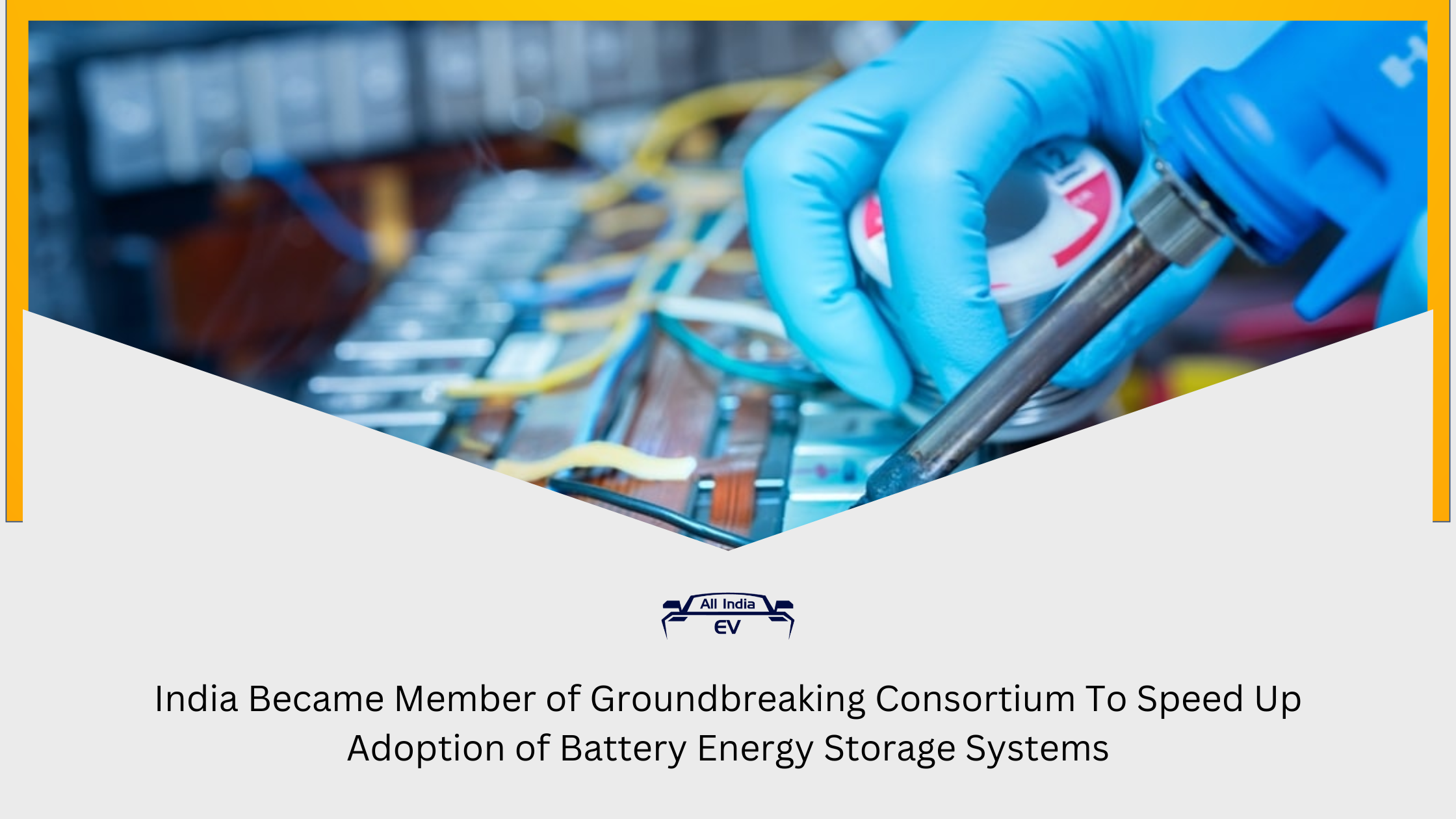India Becomes Member of Groundbreaking Consortiumto Speed Up Adoption of Battery Energy Storage Systems
India Joins BESS Consortium at COP28
India, a participant at the 2023 United Nations Climate Change Conference (COP28), has taken a big step forward by joining the Battery Energy Storage Systems (BESS) Consortium. This collaboration, led by The Global Leadership Council (GLC) within the Global Energy Alliance for People and Planet (GEAPP), focuses on bringing nations together to secure 5 gigawatts (GW) of BESS commitments by the end of 2024.
Energy Security Boost for India
India’s inclusion in the consortium signals a strong commitment to enhancing energy security and ensuring reliable energy access for all. Earlier this year, the Indian government approved a scheme dedicated to developing 4,000 megawatt-hours (MWh) of BESS projects by 2030-31. This scheme, providing up to 40% of capital cost support through Viability Gap Funding (VGF) to developers, aims to lower infrastructure costs and promote public-private partnerships.
Collaborative Action for Renewable Energy Integration
Saurabh Kumar, Vice President – India, GEAPP, emphasized the consortium’s focus on collaborative efforts to facilitate a positive transition towards integrating renewable energy. Expanding BESS infrastructure is considered crucial in addressing intermittency issues, accelerating the integration of renewable energy, and introducing innovative regulations for grid balancing.
Powering Progress in India
At The Energy Transition Dialogues (TETD) in New Delhi, GEAPP revealed a comprehensive report titled ‘Powering Progress: Batteries for Discoms: A Market Action Report on Accelerating Battery Energy Storage in India.’ The report predicts a need for approximately 42 GW (208 GWh) of BESS to integrate 392 GW of Variable Renewable Energy (VRE) by 2030, mainly from solar and wind sources.
Expansion Plans and Targets
GEAPP also announced the expansion of its BESS project in India, aiming to achieve a 1GW target for Distribution Companies (DISCOMS) by 2026. This initiative involves IndiGrid, India’s first power sector infrastructure investment trust, undertaking a 20 MW/40 MWh project in Delhi. GEAPP plans to provide concessional debt financing and technical support, offering a unique approach to overcome cost and regulatory challenges.
Global Commitment to BESS Consortium
Apart from India, other countries like Barbados, Belize, Egypt, Ghana, Kenya, Malawi, Mauritania, Mozambique, Nigeria, and Togo have joined the BESS Consortium. This collaborative effort aims to develop 90 GW of storage capacity, playing a crucial role in achieving the estimated 400 GW of renewable energy needed by 2030.
Future Goals and Timeline
The BESS Consortium, with support from various partners, aims to achieve its initial 5 GW goal by 2024 and deploy these systems by 2027. The consortium’s collaborative approach seeks to transform energy systems in low- and middle-income countries (LMICs) and speed up the adoption of cleaner energy sources alongside BESS technology.

